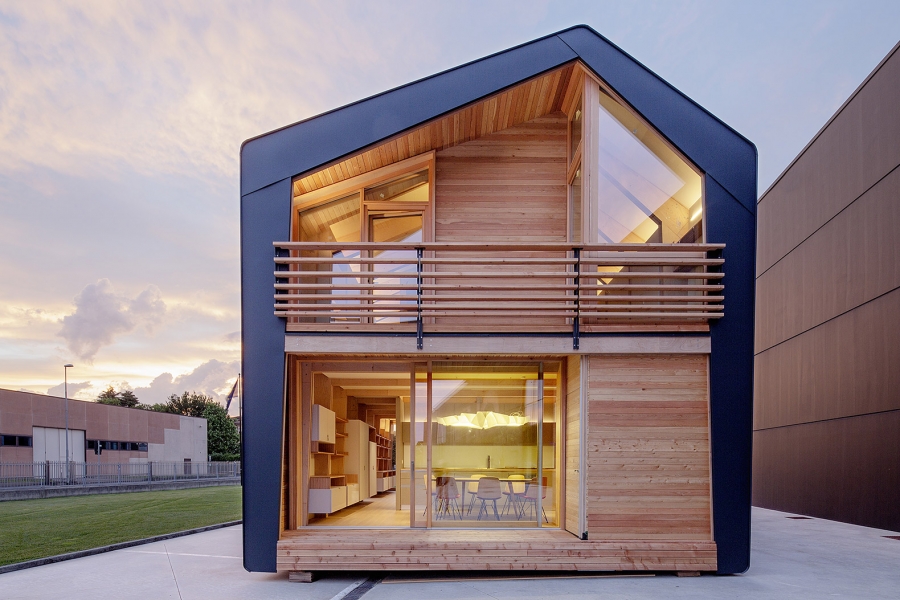The future of our globe lies in sustainable living habits.
From energy-conscious urban systems to lighter-footprint residences, sustainable homes are a key component of navigating water, energy, and population crises.
I’m not saying that you should commit to a fully off-grid lifestyle, although I am in the middle of such a transition as I write this. It is possible to bring sustainability into your home in other ways.
Making your home more sustainable has multiple benefits beyond its generous contribution to the earth’s vitality and longevity. Sustainable homes are more likely to have a higher market and resell value, for example. They are also more likely to support frugal household practices, minimizing your homeownership bill.
Prospective homeowners should prioritize homes more likely to foster sustainable living habits. These may include newer residences or improved land—the most sustainable homes are ones you can design yourself!
Current homeowners can make their homes more “green” in the meantime by implementing the following tips.
-
Seek Ways to Reduce Energy Dependency
I’ve already written a post about ways to make your home more energy efficient. If you haven’t done so already, give that post a quick glance now.
Your capacity to reduce your energy dependency lies first and foremost in your home’s ability to retain heat or cool air during seasonal swings. Eliminating air leaks or potential for air leaks can go a long way in reducing your annual energy bill.
The same goes for investing in premium insulation, including double-pane windows and doors, if constructing your home yourself. Older homes are frequently prey to poor insulation and air circulation, landing homeowners with a massive carbon footprint and thousands of dollars in energy costs.
I highly recommend getting a professional home energy audit, an inspection designed to assess your home’s energy dependency and means to achieve greater independence.
Energy independence relies in many ways on your home’s structural profile: insulation, windows, doors, energy sources, and lighting systems. But it also is informed by philosophy and habit. I find that the most energy-efficient homes in my neighbourhood are those owned by people committed to sustainable, eco-friendly lifestyles as a whole.
One way to start building an energy efficient mindset is to educate yourself. Spend time on this site here to learn more about energy saving in the home.
-
Limit Your Home’s Waste
Households are the largest culprits when it comes to waste production. In 2013, Americans generated over 254 million tons of trash, much of which could have been composted or recycled.
Sustainable homes are waste-free or low-waste residences. The main principle of sustainability, after all, lies in effective resource management. The less dependent we can become on landfills, the more that land can be used for other purposes—resolving food shortages, for example, or regenerating polluted soil.
Limit your household’s waste by familiarizing yourself with what can and cannot be recycled. Sign up for your city’s recycling services and compost food scraps. Composting food waste alone can limit the burden on landfills and prevent soil pollution.
Aim to purchase food items that don’t require packaging or as little packaging as possible. Better yet, opt for plastic-free grocery shopping. Single-use plastics nearly outweigh the value of recycling itself!
-
Think Beyond the Three “R”s
We all know the mantra: reduce, reuse, recycle. This is a valuable mantra, but there are more “R”s out there than most homeowners realize.
Repair, for example, is an excellent “R” word that should earn a royal place in every home. Sustainable homes are ones that are self-sufficient. Bringing less material inside your home can, overall, lessen its footprint.
Repair what can be repaired within your home. Hire a contractor or technician to repair leaks, doors, and appliances. Do what you can to extend the life-cycle of your home’s structural components.
Refill is another “R” word. Refill glass or plastic packaging you’ve already used. Re-gift anything you no longer have a use for, rather than throwing it in the landfill.
-
Prioritize Quality
If you are building from scratch, opt for quality, sustainable building materials over inexpensive, non-sustainable products. In the long run, higher quality products are far more likely to last longer, reducing your need for repairs and replacements.
The same goes for appliances and other materials within your home. While higher quality products may be more expensive, they are more likely to be energy-efficient and built mindfully.
What would you rather paint your walls with: a chemical-laden primer from Home Depot or a clay-based, non-toxic base purchased from your sustainable home goods store?
-
Know Your Home
The secret to a sustainable home is knowledge. If you haven’t built your current residence yourself, know your home—its foundation, materials, structural integrity, and energy reliance. Get intimate with those details and numbers.
Set aside time to get your home professionally inspected. Anticipate damage before it happens and opt for a sustainable, eco-friendly, long-term solution.
-
Make the Most of Your Land
If you own acreage or even a small patch of lawn, make the most of these green areas. Cultivate an edible forest in your backyard. Set aside a portion of your lawn for a compost heap.
Avoid using toxic pesticides or weed killers on your lawn. Plant trees to nurture the soil. Bring green inside via vertical gardens, herb planters, and eye-catching indoor plants. Opt for plants that offer more than mere visual appeal—choose edible greenery when possible.
Don’t forget about what the sky has to offer, either. Set up a rain catchment system to harvest water for irrigation purposes.
Inviting sustainability into your space does not have to be difficult. It does require, however, a genuine investment in sustainable living habits in general. Need more inspiration for building a sustainable home? Check out my post on low-waste homes.








